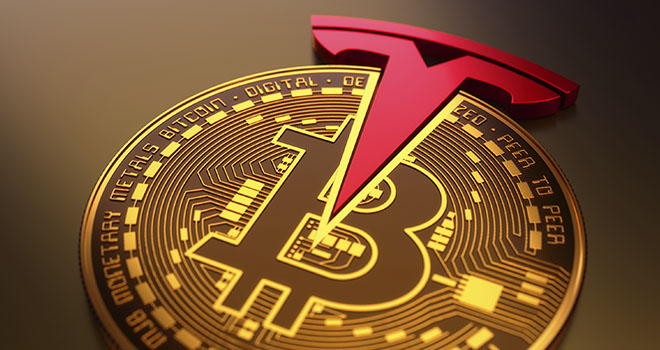Tesla CEO Elon Musk, who has been a big supporter of cryptocurrencies, implied in a Twitter exchange on Sunday afternoon that the electric vehicle maker sold or may sell the rest of its bitcoin holdings, sending the price of the cryptocurrency down. A potential sale comes just days after Musk said the company planned to hold rather than sell the bitcoin it already has.
According to Bloomberg, this type of volatility is owing to a few factors: “Bitcoin’s held by relatively few people, meaning that price swings can be magnified during low-volume periods. And, the market remains hugely fragmented with dozens of platforms operating under different standards. That means cryptocurrencies lack a centralized market structure akin to that of traditional assets.”
In March 2021, the Financial Sector Conduct Authority (FSCA) also noted with concern the increasing volume of crypto assets (cryptos) related losses suffered by financial consumers. As a result, the FSCA urged the public to be extremely cautious and vigilant when dealing with cryptos for any financial services business. Various warnings have been released since. For example, South Africa’s Mirror Trading International was crowned as the world’s largest cryptocurrency Ponzi scam. A total of around $589 million (about R8.6 billion) was lost, affecting hundreds and thousands of investors, according to Chainanalysis’ 2020 Crypto Crime Report.
The lack of regulation requires investors to do their own extensive research before investing in cryptocurrencies, but also offers opportunity for fraudsters to prey on uninformed investors.
South Africa and Crypto ownership
According to a Statista Global Consumer Survey, South Africa is among the top countries in terms of cryptocurrency ownerships with 17.8 percent of respondents indicating they owned or used crypto assets in 2020. Furthermore, South Africa is in the top four of the 55 countries surveyed for their adoption of crypto assets like Bitcoin. South Africa’s relatively high use of crypto assets increases the possibility of transaction methods being used as tools for money laundering and terrorist financing. The lack of a regulatory and legal framework, and along with it the relative anonymity in the use of crypto assets, the ease and speed of conducting cross-border transactions make crypto assets favourable for licit and illicit financial activity.
But what is happening on the regulatory front?
“While crypto assets are not currently regulated in South Africa, plans are afoot to bring the country’s AML/CFT regime (Anti-Money Laundering/Combating the Financing of Terrorism) in line with the FATF’s (Financial Action Task Force) recommendations related to the acquisition, safe custody, trading or use of crypto assets. FATF is responsible for setting international standards for combating money laundering and terrorist financing,” according to The Financial Intelligence Centre (FIC).
National Treasury and the FIC has also published a consultation document for public comment on proposed amendments to Schedules 1, 2 and 3 to the Financial Intelligence Centre Act, 2001 (Act 38 of 2001) (FIC Act) in June 2020. Among the proposed amendments is to include crypto asset service providers* (CASPs) in the list of accountable institutions under Schedule 1 to the FIC Act. CASPs will be required to register with the FIC as accountable institutions and will have to fulfil AML/CFT regulatory obligations.
“The FIC Act obligations on CASPs, as with all their businesses, irrespective of whether they are accountable institutions or not, is the reporting of suspicious and unusual transactions in terms of section 29 of the FIC Act and the prohibition in terms of section 26B to deal with UN Security Council sanctioned persons and entities,” FIC reports.
According to Pieter Smit, the executive manager for Legal and Policy division at the FIC, the implementation of a regulatory framework for the crypto asset service providers would enable the sector to operate in a safer environment by providing consumers with increased safeguards and protection mechanism.
In April 2020, the Intergovernmental Fintech Working Group (IFWG), a group of South African financial sector regulators, also developed a policy position paper on this subject. The purpose of this document was to provide specific recommendations for the development of a regulatory framework for crypto assets, including suggestions on the required regulatory changes to be implemented.
The FSCA published a draft declaration of crypto assets as financial products in November 2020 as an interim step in mitigating certain immediate risks in the crypto assets environment pending the outcome of broader developments currently taking place through the Crypto Assets Regulatory Working Group’s (CAR WG), which will inform future policy interventions to be implemented across a variety of regulators and laws.
In all its crypto warnings thus far, the FSCA reminded consumers who wish to invest in any investment asset or product – specifically unregulated, risky ones such as cryptos – that if it sounds too good to be true, it usually is. Consumer caution is strongly advised to avoid painful or catastrophic financial losses.
Click here to download the FIC article: Crypto assets getting the regulatory treatment
Also read:
Crypto Assets – Draft declaration to define it as financial product




